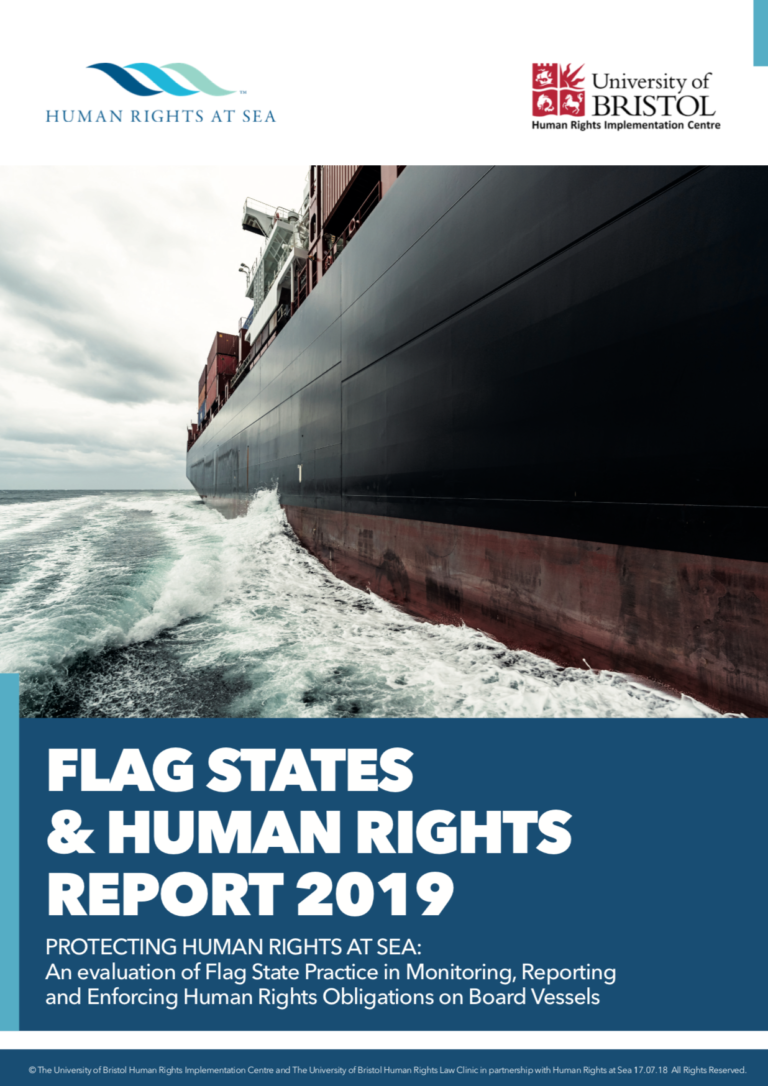The human rights obligations of States apply equally at sea, as they do on land. That said, human rights are frequently violated at sea, but the violations remain unpunished. This is hardly surprising given that it is difficult to monitor violations at sea away from law enforcement agents and judiciary supervision. Accordingly, it is imperative that the monitoring, reporting and enforcement of states’ human rights obligations at sea is continuously examined and, in many cases, challenged, in order to encourage better protection.
To this end, the present report has been prepared by University of Bristol Law School graduate and postgraduate researchers in partnership with the independent UK human rights charity, Human Rights at Sea as part of the University’s Human Rights Implementation Centre and Human Rights Law Clinic. The Flag State Research Project was established to comment on the under-explored issue of flag State practice and their international and national human rights obligations. In doing so, this project aims to reveal deficiencies in human rights protection to offer informed recommendations. Such insight, it is hoped, will better flag State assessments, and eventually flag State practice, in the future.
In this report, the flag States identified for evaluation are Panama, Denmark, and Taiwan, which offer a combination of open and closed registries in different regions.

